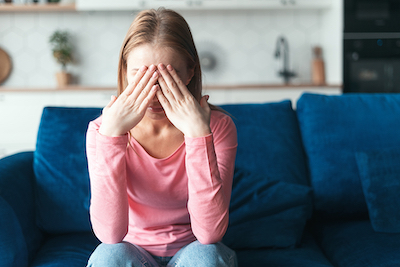Social interactions are an essential part of human life, as they contribute to the development of personal and professional relationships. However, not everyone is equally comfortable in social settings. Some individuals are shy, while others suffer from social anxiety. Although these two terms are often used interchangeably, they are not synonymous. This article will explore the differences between shyness and social anxiety, discuss the reasons behind each, and provide some guidance on how to address these issues.
Shyness
Shyness is a common trait that many people experience at some point in their lives. It is characterized by a feeling of discomfort or awkwardness in social situations, often due to self-consciousness or a fear of being judged. Shy individuals might find it challenging to initiate or maintain conversations, express their opinions, or participate in group activities. However, shyness is generally considered a personality trait rather than a mental health issue.
Causes of Shyness
Shyness can stem from various factors, including genetic predispositions, upbringing, and environmental influences. Some research suggests that shyness may be hereditary, as children of shy parents are more likely to exhibit shy behaviours. In addition, shy individuals may have grown up in families that encouraged reserved behaviour or displayed anxiety in social situations.
Shyness can also result from negative past experiences, such as bullying or public embarrassment, which can lead to the development of low self-esteem or a fear of social judgment. Moreover, cultural factors can contribute to shyness, as certain societies place a higher value on modesty and restraint in social interactions.
Social Anxiety
Social anxiety, also known as social anxiety disorder or social phobia, is a mental health condition characterized by an intense fear of social situations, negative self-evaluation, and avoidance of social interactions. This fear can be so overwhelming that it significantly impacts a person’s daily life, causing considerable distress and impairing their ability to function in various aspects of life, including work, school, and relationships. Social anxiety disorder is more than just feeling shy; it is a persistent and debilitating condition that requires professional help to address.
Causes of Social Anxiety
The exact cause of social anxiety is not fully understood, but it is believed to result from a combination of genetic, environmental, and psychological factors. A family history of anxiety disorders can predispose an individual to develop social anxiety. Additionally, brain chemistry and structure may play a role in the development of this disorder, as an imbalance in the neurotransmitters responsible for regulating mood and anxiety can contribute to social anxiety.
Environmental factors such as childhood experiences can also lead to social anxiety. For instance, overprotective parenting, family conflict, or a history of abuse or bullying can create a sense of insecurity and foster the development of social anxiety. Furthermore, individuals with social anxiety often exhibit cognitive distortions, such as negative self-evaluation, excessive worry about social situations, and an irrational fear of being judged or humiliated.
Differences Between Shyness and Social Anxiety
- Severity and Impact on Functioning: While shyness may cause mild to moderate discomfort in social situations, social anxiety involves intense fear and anxiety that can significantly interfere with an individual’s ability to function in everyday life.
- Persistence: Shyness can be situational or temporary, whereas social anxiety is a long-lasting and pervasive condition that persists across various social contexts.
- Avoidance: Shy individuals may feel uncomfortable in social settings but still participate in social activities. On the other hand, people with social anxiety often engage in avoidance behaviours, actively evading social situations to escape the intense anxiety they experience.
- Recognition of Irrationality: Those with social anxiety are typically aware that their fears are irrational and disproportionate to the actual threat posed by social situations. Shy individuals, however, may not view their discomfort as irrational or excessive.
- Need for Professional Help: While shyness is generally considered a personality trait that may not require intervention, social anxiety is a mental health disorder that often necessitates professional treatment to manage its debilitating symptoms effectively.
Addressing Shyness and Social Anxiety
For individuals dealing with shyness, self-help strategies and gradual exposure to social situations can help build confidence and social skills. Joining clubs or groups, practicing conversation starters, and engaging in activities that promote self-expression can be beneficial. Additionally, focusing on positive experiences and developing a healthy self-image can alleviate feelings of self-consciousness.
In the case of social anxiety, professional help is often needed to manage the disorder effectively. Treatment options may include psychotherapy, medication, or a combination of both. Cognitive-behavioural therapy (CBT) is a common and effective approach for treating social anxiety, as it helps individuals recognize and change negative thought patterns while providing exposure to feared social situations in a controlled manner. In some cases, medication such as selective serotonin reuptake inhibitors (SSRIs) or benzodiazepines may be prescribed to alleviate symptoms of anxiety.
Understanding the differences between shyness and social anxiety is crucial for identifying and addressing these issues appropriately. While shyness is a common personality trait that can be managed with self-help strategies and gradual exposure, social anxiety is a debilitating mental health disorder that requires professional intervention. By recognizing the distinctions between these two conditions, individuals can seek the appropriate support and treatment to improve their social well-being and overall quality of life. Remember, it is always essential to consult with a mental health professional if you suspect that you or a loved one may be struggling with social anxiety. With the right help and guidance, it is possible to overcome the challenges posed by both shyness and social anxiety, paving the way for richer and more fulfilling social experiences.











